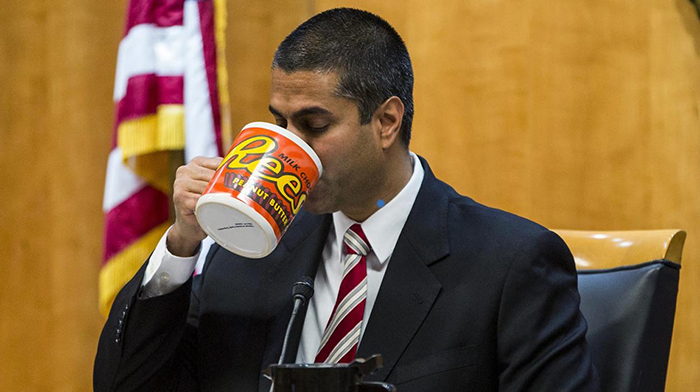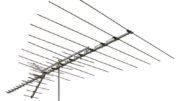FCC Chair Ajit Pai, who has chaired the FCC for the last four years, has announced that he will step down on January 20. This is a very common practice among appointees from the Executive Branch. Readers of this blog may recall that I commented on Mr. Pai’s ascent in January, 2017. At that time, his predecessor Tom Wheeler left at the same time as a new President was inaugurated.
No stranger to controversy
Mr. Pai’s FCC has had a higher profile than earlier commissions, in part because of its handling of the issue of net neutrality. This isn’t a political blog and there are many arguments to be made about net neutrality that simply don’t belong here. However, putting aside that central issue, Mr. Pai’s FCC has been accused of improper procedures centering around the comment process. There have been accusations that comment servers overloaded at a critical time and that the public was not informed. Because the issue of net neutrality is so important to our internet-based culture, it’s been hard to feel good about how it’s been handled whether or not you agree with the FCC’s actions.
Mr. Pai also faced scrutiny over a proposed deal between Sinclair Broadcast Group and Tribune, two of the country’s largest operators of local stations. This deal would have created the largest broadcast operator in history. Sinclair has been accused of requiring its stations to run overtly partisan content as news. Its actions are not explicitly illegal and no charges were ever filed. However, the entire deal was colored by accusations that Mr. Pai was considering Sinclair’s wishes over the public good. The deal eventually fell apart.
However, Sinclair Broadcast Group continues to be the largest proponent of ATSC 3.0, the next-generation broadcast standard. Mr. Pai’s FCC took the unprecedented step of allowing ATSC 3.0 broadcasts to take place across the country in 2017. This step flew in the face of 80 years of established broadcast law and was criticized at the time. It brought additional accusations of collusion between Sinclair and Mr. Pai, although such accusations led to no action. More importantly, in the three years since, it’s failed to bring ATSC 3.0 to the masses any sooner.
T-Mobile buys Sprint and AT&T buys Time Warner
Two of the largest telecommunications deals in history took place during Mr. Pai’s tenure. I’m still not convinced that T-Mobile’s purchase of Sprint will actually be profitable for them. It’s certainly a boon for Sprint users who were continually on the trailing end of new technologies. However, it remains to be seen if T-Mobile will suffer as it absorbs all of Sprint’s legacy tech.
The other major story here is AT&T’s purchase of Time Warner. (Disclosure: Signal Group, which owns this blog, is an AT&T Preferred Dealer.) While other media groups decried this purchase, AT&T’s been able to solidify its position as a media leader and there have been no negative impacts to the rest of the landscape. Despite fears that all Time Warner content would be locked behind a paywall, that hasn’t happened. If anything. HBO Max hasn’t been able to hold onto its Warner content very well, a frustrating development for fans of the DC superhero films.
So bye, bye to Commissioner Pai
(Apologies to Don McLean) Ajit Pai broke barriers by being a person of color and the first Asian-American to chair the FCC. He sought to bring a level of style and humor to the post that his predecessors lacked. Mr. Pai also brought a new understanding of the connected world in which we live to a commission that was accused of moving too slowly. He does deserve credit for that.
And yet as with so many bureaucrats in the last four years, he leaves in a cloud of partisan backlash, where one side sees only the positive and the other side sees only the negative. I think it’s important to note that Democratic commissioner Jessica Rosenworcel, who has been mentioned as a potential replacement for Mr. Pai, was kind and complimentary of Mr. Pai as he announced his retirement. Let us hope that whatever form the FCC takes in the next four years that it is orderly and seeks to serve the American people.




